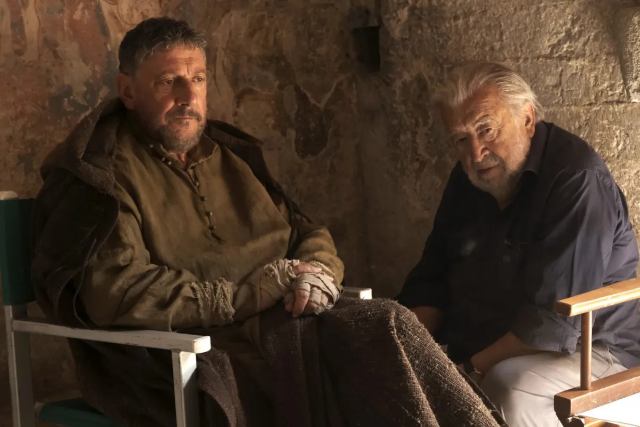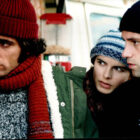Italy has given birth to some of the most influential and revered filmmakers in the history of cinema. Pupi Avati is undoubtedly one of its unsung heroes. Avati, born on November 3, 1938, in Bologna, has a career spanning several decades. During which he has crafted a diverse body of work that spans genres and styles. His films are characterized by a unique blend of horror, drama, and dark humor. They often explore the complexities of human nature and the mysterious realms of the supernatural. In this article, we will take a closer look at Pupi Avati’s cinematic journey. Focusing especially on some of his most intriguing and thought-provoking works: “Zeder,” “Dante,” “Tutti i defunti tranne i morti,” “Una gita scolastica,” and “Stelle nel fosso.”
Pupi Avati: The Auteur
Before delving into the analysis of his films, it is essential to understand the essence of Pupi Avati as a filmmaker. He belongs to a generation of Italian directors who emerged in the wake of the neorealism movement and who were deeply influenced by it. Avati’s work is characterized by a meticulous attention to detail, a deep-rooted exploration of human emotions, and an unmistakable connection to his homeland. He masterfully weaves stories that feel both universal and deeply Italian. Remarkable, is his ability to create an immersive atmosphere is a testament to his storytelling prowess.
Zeder (1983)
“Zeder,” also known as “Revenge of the Dead,” is a haunting and enigmatic film that exemplifies Avati’s fascination with the supernatural. The story revolves around a writer, Stefano, who stumbles upon a cryptic message written in the margin of an old book. This discovery leads him into a labyrinthine world of dark secrets and forbidden knowledge. As the line between the living and the dead blurs, Avati creates a tense and disorienting atmosphere that keeps the audience on the edge of their seats.
“Zeder” can be seen as a metaphor for the relentless pursuit of forbidden knowledge and the consequences that follow. Avati skillfully combines elements of horror and mystery, and the film’s eerie ambiance lingers long after the credits roll. It’s a testament to Avati’s ability to merge the supernatural with the deeply psychological.
Una gita scolastica (1983)
“Una gita scolastica” is a coming-of-age drama that reflects Avati’s skill in capturing the nuances of human relationships and the emotional complexity of adolescence. The film revolves around a group of schoolchildren on a field trip who experience the joys and tribulations of growing up. Avati’s portrayal of the characters’ emotional turmoil and self-discovery is both heartwarming and profound.
While not as renowned as his horror works, “Una gita scolastica” showcases Avati’s ability to evoke empathy and nostalgia.
“Stelle nel fosso” is a poignant and melancholic drama that delves into themes of isolation, redemption, and the human desire for connection. The story follows a lonely old man, Ermanno, who finds an unexpected companion in a homeless boy named Leonardo. The film beautifully explores the unlikely friendship that forms between these two disparate souls and their shared journey towards self-discovery.
Avati’s “Stelle nel fosso” is a testament to his ability to tell profoundly moving stories with a gentle touch. It’s a reflective work that highlights the power of human connection and redemption, even in the most unlikely circumstances.
Tutti i defunti tranne i morti (2019)
Released in the same year as “Dante,” “Tutti i defunti tranne i morti” is another intriguing addition to Avati’s filmography. The film explores the absurdity of bureaucracy and the rigidity of Italian bureaucracy when a small town’s graveyard becomes overcrowded. The authorities decide to exhume the bodies and rebury them in a nearby cemetery. However, the townspeople are not ready to let their loved ones rest in peace.
This film is a dark comedy with a satirical edge, where Avati uses humor to dissect the absurdities of human behavior. The narrative underscores the irrationality of our fear of death and our obsession with order and control. It’s a thought-provoking exploration of human nature through the lens of dark comedy.
Dante (2019)
“Dante” is a recent addition to Avati’s filmography, and it marks his return to the director’s chair after a brief hiatus. The film follows the life of the celebrated poet Dante Alighieri and his tumultuous relationship with Beatrice Portinari, the love of his life. Avati’s interpretation of Dante’s life is a sumptuous visual and emotional feast. Through exquisite cinematography and impeccable performances, he transports the audience to the 13th century, immersing them in the poet’s profound spiritual and artistic journey.
With “Dante,” Pupi Avati takes a departure from his usual horror and suspense-driven narratives and delves into historical drama. The film is a testament to his versatility as a filmmaker, showcasing his ability to capture the essence of a bygone era with meticulous attention to details.
In conclusion, Pupi Avati is an auteur with a multifaceted body of work that transcends genre boundaries. His films, whether exploring the supernatural, historical drama, dark comedy, or emotional drama, consistently showcase his remarkable storytelling skills. Avati’s ability to evoke a wide range of emotions and his commitment to exploring the human condition make him a true master of Italian cinema. While some of his works may be lesser-known outside of Italy, they are gems waiting to be discovered by cinephiles seeking depth and emotional resonance in their cinematic experiences. Pupi Avati’s contribution to the world of film is a testament to the power of storytelling. His works deserves a place of honor in the pantheon of great Italian directors.
Watch all the movies on MovieItalyPlus
Click here to read more articles!






